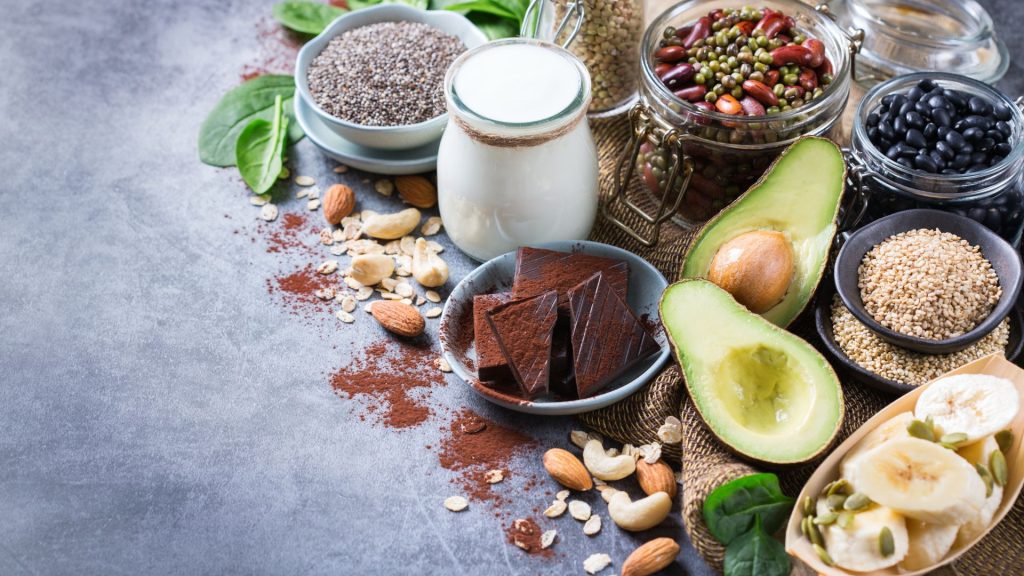Oxidative stress can contribute to many different health problems, from inflammation and disease to chronic conditions like arthritis. Eating foods high in antioxidants may help protect you against such damage.
Antioxidant-rich foods include spices and herbs, fruits, berries, vegetables, nuts and beans. These foods contain compounds like beta-carotene, chlorophyll and flavonoids which provide natural pigments as well as acting as powerful antioxidants in our foods.
Fruits
Fruits and vegetables are excellent sources of antioxidants. Consuming an assortment of colorful fruit and veggies at breakfast, lunch and dinner will ensure you receive ample antioxidant protection for optimal health.
Anthocyanins, water-soluble pigments found in fruits like red, purple and blue grapes, play an essential role in giving their hue. Anthocyanins reduce risk factors associated with metabolic disease as well as helping prevent cancer and lower blood pressure.
As often as possible, incorporate berries, cherries and figs into your diet – they boast high concentrations of phenol antioxidants! Add them to a green smoothie or create an exquisite fig and burrata salad!
Vegetables
Diets rich in fruits, vegetables, whole grains and nuts may help combat diseases caused by oxidative stress such as cardiovascular disease and cancer. Flavonoids – antioxidants present in plant foods like berries, tomatoes, tea, onions and garlic – are particularly abundant.
The berries category is especially abundant with antioxidants, while tomato-based sauces and sun dried tomatoes (with an average value of 1.0 mmol/100 g) fall under this heading as well. Herbs and spices comprised many fresh and dried products like allspice, clove, birch leaves and wood cranesbill. Their antioxidant values varied the most significantly due to being both herbal medicines and supplements.
Nuts
The antioxidant trend has given birth to an abundance of products including frozen berries and green tea beverages, as well as supplements touted as disease fighters and investigations being done into various herbs and spices for their potential health benefits.
Nuts and seeds such as peanuts (actually legumes) and walnuts contain an array of vital nutrients, such as healthy fats, fiber and vitamins and minerals. Plus they’re packed full of antioxidants as well as phytochemicals!
Antioxidants found in food are more effective than supplements; eating an array of fruits, vegetables, nuts and whole grains will provide you with optimal amounts of antioxidants. Food preparation also affects availability; for instance cooking tomato increases its lycopene content while boiling artichokes releases their phytochemicals more rapidly.
Coffee
Antioxidants are essential in our bodies for protecting us against oxidative stress. They come from food sources or can even be produced within ourselves.
Coffee and tea are two important sources of antioxidants in human diet, offering up 200 to 550 milligrams per cup. Both beverages contain polyphenols and chlorogenic acids as well as theaflavins and thearubigins – providing humans with valuable health benefits.
Nuts and seeds are another excellent source of antioxidants, adding them to smoothies or salads as a food-source or eating them alone as snacks. Almonds and walnuts provide plenty of both antioxidants as well as healthy fats.
Dark Chocolate
Chocolate made from cocoa beans contains plant chemicals known as flavonols that may provide cardiovascular health benefits. Studies have indicated that flavanols enhance blood flow through increasing nitric oxide-mediated vasodilation. When choosing dark chocolate with a higher percentage of cocoa content, flavanols could offer greater potential benefits.
Dark chocolate provides essential antioxidants and essential nutrients, such as iron, potassium, phosphorus, magnesium copper zinc manganese. Look for “fair-trade” labeled chocolate to ensure cocoa beans were harvested fairly without child labor being involved.
A diet rich in antioxidant-rich foods — particularly colorful fruits and vegetables — is vital to overall good health, since our bodies do not store antioxidants for future consumption. Green tea, coffee and fresh-made fruit or vegetable juice can all help us meet our daily antioxidant requirements. Cooking method may have an impactful impact; for instance, tomatoes provide more lycopene when cooked than raw tomatoes do.



